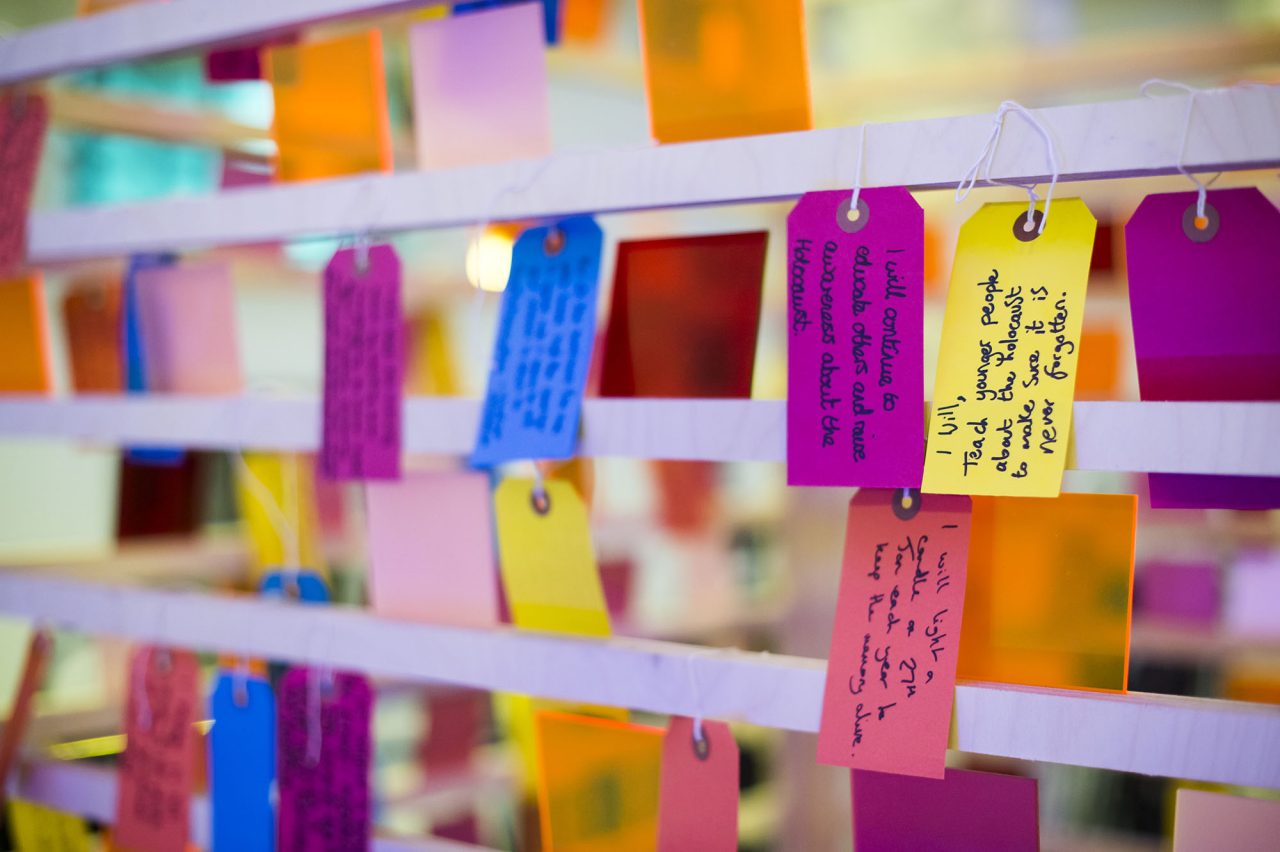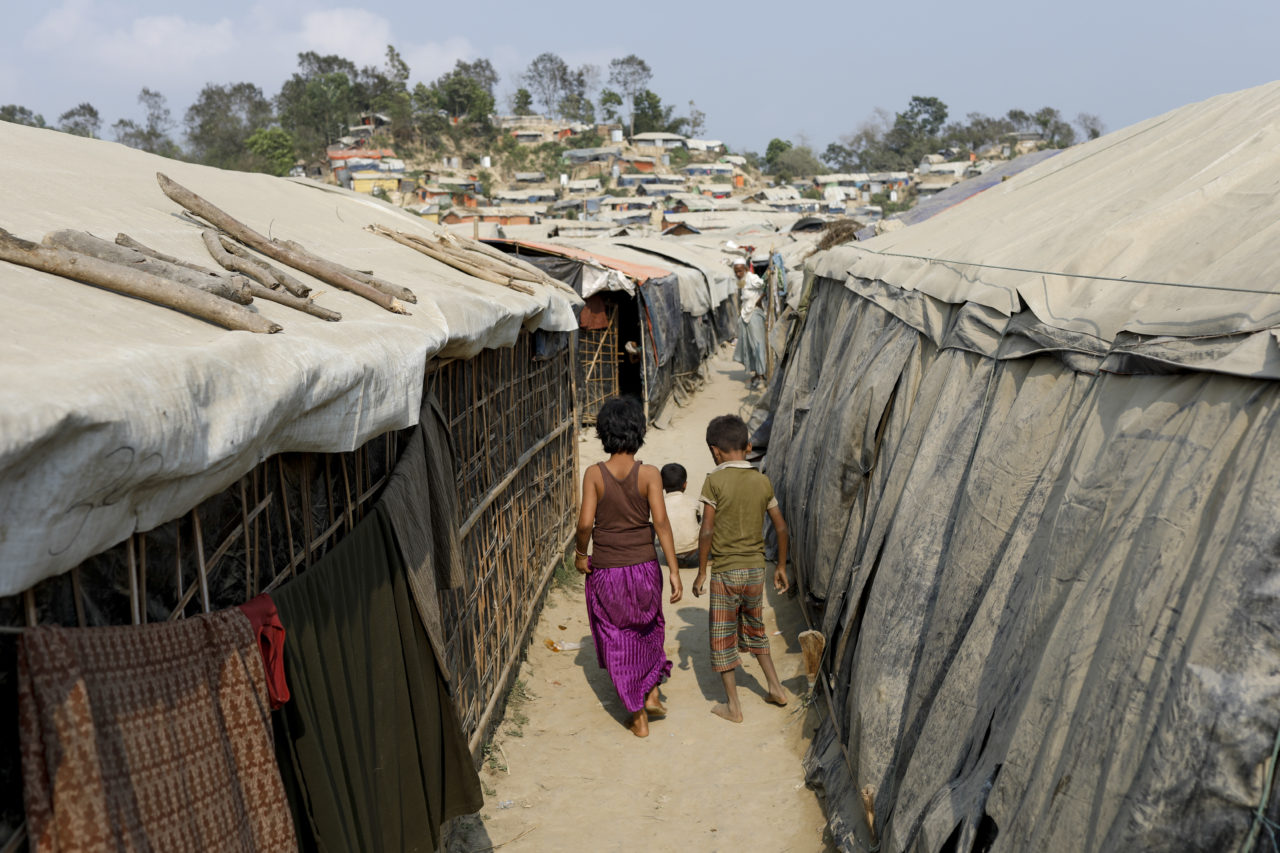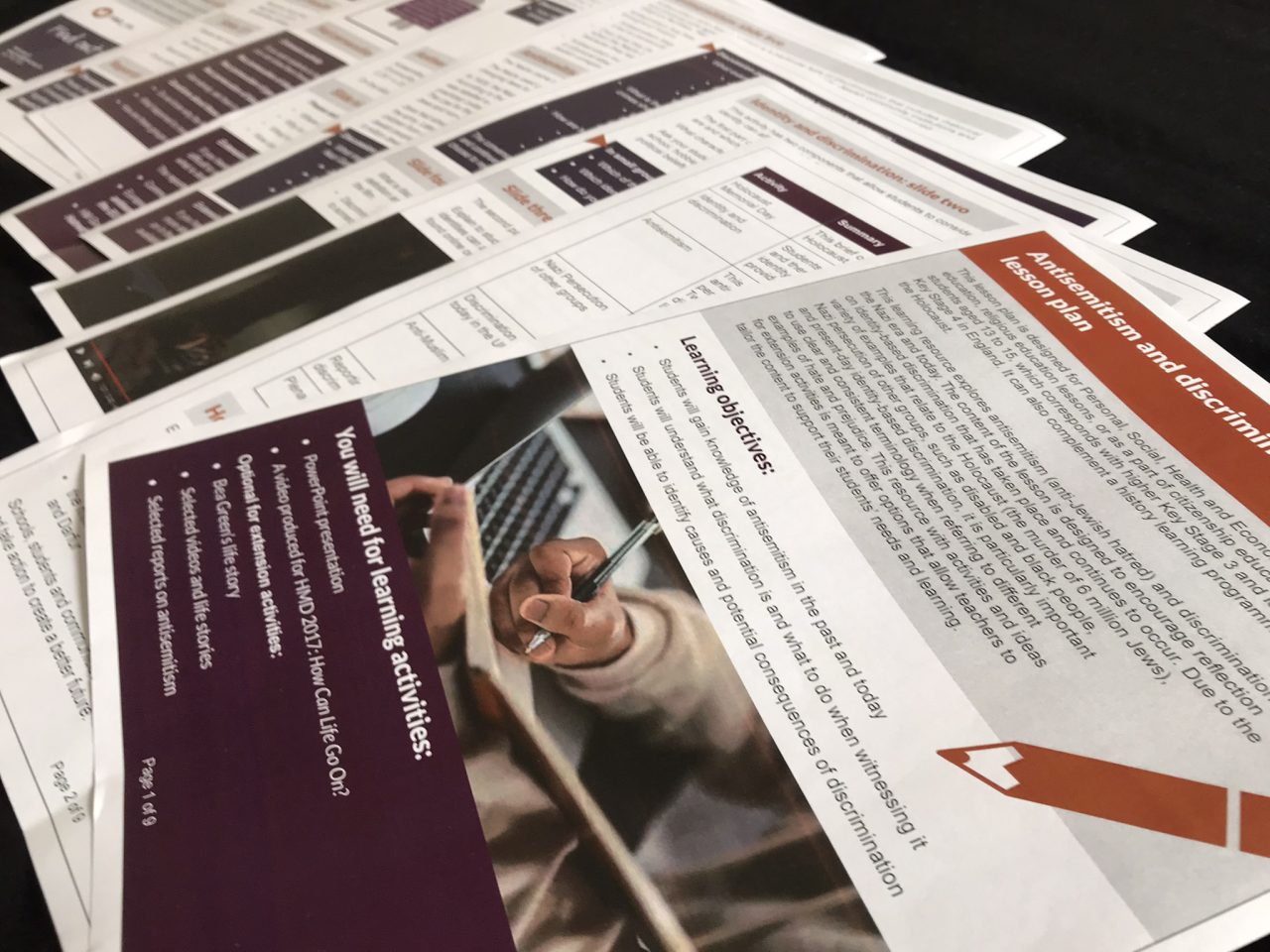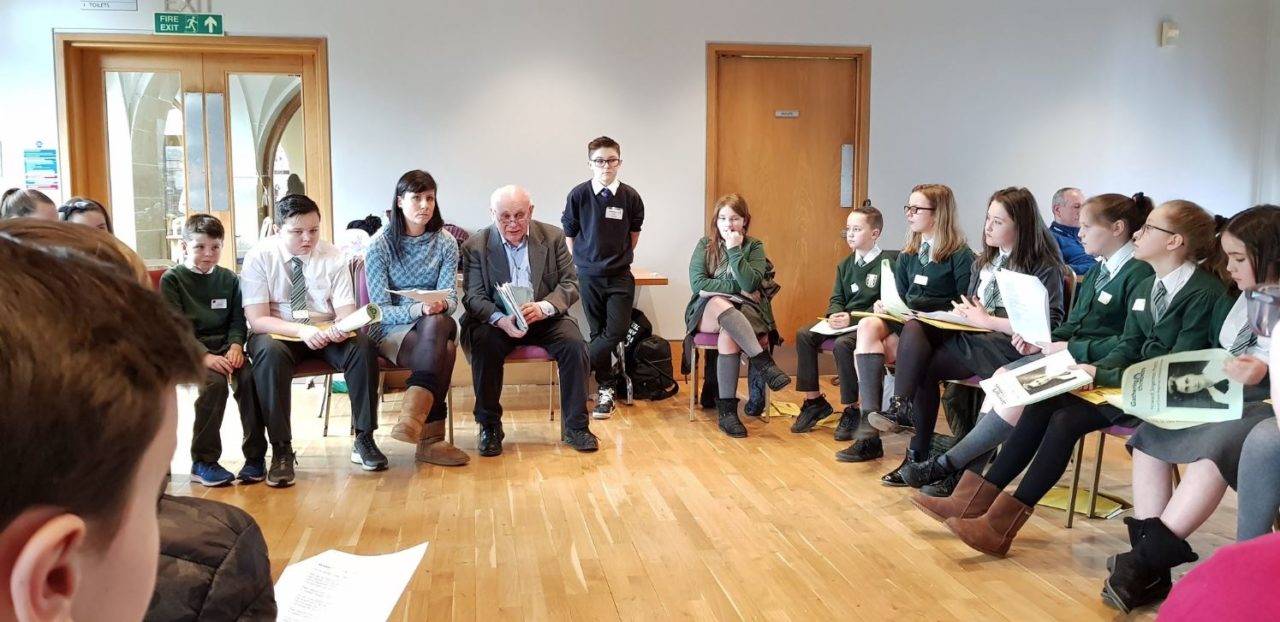HMD 2024 Guidance for activity organisers in the light of the conflict in Israel and Gaza
This document has been produced by the Holocaust Memorial Day Trust (HMDT) to provide guidance, help and support to Holocaust Memorial Day (HMD) activity organisers ahead of HMD 2024. HMD is a time for bringing communities together in collective remembrance of the millions of people persecuted and killed for who they were, and in so doing, to learn the lessons of the past and stand up to hatred, bigotry and racism wherever we find it today. At a time of heightened tensions and communal division in the UK as a result of the conflict in Israel and Gaza, bringing communities together in recognition of our common humanity is more important than ever and HMD activity organisers all across the UK play a vital role in making this happen.

As the charity established and primarily funded by the UK Government to promote and support HMD in the UK, HMDT’s purpose is to promote and support HMD as the UK’s national day to commemorate the 6 million Jewish men, women and children murdered during the Holocaust, alongside the millions of people murdered under Nazi persecution of other groups and during more recent genocides in Cambodia, Rwanda, Bosnia and Darfur. HMDT is here to help HMD activity organisers and the guidance below has been created as a result of questions, feedback and queries we have received from HMD activity organisers across the country.
Organising an HMD activity, your questions answered
The questions below have been split between those that affect the organisation of an activity and those that affect the content of an activity.
HMD Activity Organisational Questions
Is marking HMD a political statement?
No. HMD is a time to remember the 6 million Jews murdered during the Holocaust, alongside the millions of people murdered under Nazi persecution of other groups and during more recent genocides in Cambodia, Rwanda, Bosnia and Darfur. It is a time for communities to come together in remembrance and to learn the lessons from the past to build a better future together. HMD is not and has never been political, nor is it intended to demonstrate support or otherwise for any of the parties involved in the conflict in Israel and Gaza or any other conflict. It is a day for everyone, a day when we remember all those millions of people murdered because of something that made them who they were – for example their ethnicity or faith.
The organisation I work for or represent is very supportive of one side in the conflict in Israel and Gaza, can we still mark HMD?
As highlighted above HMD is not political and is about bringing communities together to remember the 6 million Jews murdered during the Holocaust, alongside the millions of people murdered under Nazi persecution of other groups and during more recent genocides in Cambodia, Rwanda, Bosnia and Darfur. The men, women and children murdered were of many different faiths, ethnicities, classes and many other different characteristics, but they all shared a common humanity. At a time of division remembering our common humanity is more important than ever. Individuals, families and communities will have different views about the conflict in Israel and Gaza, as they will about other conflicts around the world, but whatever those differences may be, marking HMD is not subject to them and is a chance to put those differences aside for a time to come together in remembrance of those that were murdered simply because of who they were. For this reason, we do not think that it would normally be appropriate for an event which marks HMD to be explicitly linked to an event designed to support one or other side in the current conflict.
Planning HMD activities – security
Security requirements for any HMD activity or event are very much situation and location dependent. The level of security your event or activity may require will depend on several factors:
- Who can attend your activity or event (whether in person or online) – is the activity or event by invitation only or open and advertised to the public? One way of improving security is not to release details of the location or link to an online activity or event earlier than 24 hours beforehand, thereby maintaining the security of its location.
- Is your activity or event taking place in a contained or secure space eg activities taking place within an office or school are generally much more secure than an activity taking place in a shopping centre or a park.
- Who is coming to your activity or event eg if you have any high-profile guests such as politicians, faith leaders or other officials then it may be necessary to provide extra security.
Holding an HMD event in a public place or making it open for anyone to attend makes it easier for individuals to attend and for communities to come together. However, such events inevitably pose greater security challenges than, for example, closed events with a specifically invited audience.
The openness of your activity or event, whether in-person or online, will dictate the level of security that you require. If you are inviting specific individuals, if the activity or event is in a location where the public cannot come and go through, and there are no high-profile individuals in attendance, then the security presence you require will be lower.
If your activity or event is open to the public, has been advertised widely and there are expected to be high-profile individuals in attendance then the security you require will be much greater. In this instance we would strongly recommend that you discuss security for the event with your local police force at senior level as soon as possible.
If the event is taking place in person, it will enable the police to be proactive and discuss any other events taking place that could impact your activity or event e.g., if another large public event or if a protest is planned nearby. If you’re not sure who to contact within the local police, please contact CST who can assist you with identifying the right police force to contact.
If the event is taking place online, it will enable the police to discuss with you any risks around online security.
Our HMD event is online – do we need to worry about security?
Yes – even online events can be disrupted. We recommend you consider:
- Whether your event is open to attendees joining at the time or if attendees need to register in advance
- If you are enabling the ‘chat’ function so attendees can add comments
- Muting all attendees
We recommend you make sure someone on the organising team is responsible for monitoring online chat (if it is enabled) and online attendance (eg to monitor, mute and if necessary remove an attendee).
If you are expecting a large or unregistered audience, then we recommend you discuss with the police or CST in advance to check any factors that might affect your event.
We do not want to advertise our HMD activity or event; can we still add it to the HMDT activity map?
It is great to know what activities are taking place across the UK and many HMD activity organisers choose to add their activities to our online map. You can add your activity to the map and request for it to remain ‘unlisted’; in this case HMDT staff will be the only ones who can view it. Alternatively, should you not wish to add your activity to our map this year then we would encourage you to let us know by emailing us directly at [email protected].
Activity Content Questions
Should I acknowledge the situation in Israel and Gaza in my HMD activity? And if so, how?
At the heart of HMD is the remembrance of the 6 million Jews murdered during the Holocaust, alongside the millions of people murdered under Nazi persecution of other groups and during more recent genocides in Cambodia, Rwanda, Bosnia and Darfur. Indeed 2024 marks the 30th anniversary of the genocide against the Tutsis in Rwanda. The remembrance of these events should be at the heart of any HMD activity or event.
In previous years HMD activity organisers have on occasion referenced more recent examples of identity-based persecutions, such as the Rohingyas in Myanmar, the Uyghurs in China or the Yazidis in Iraq. Any reference to more recent examples should be in addition to, and not a replacement for, remembrance of the Holocaust, Nazi persecution of other groups and the more recent genocides listed above.
As noted earlier, the conflict in Israel and Gaza has created communal division, antisemitism, anti-Muslim hatred and tension within the UK. Any reference to the conflict during HMD activities or events should therefore be considered with considerable sensitivity recognising the complexity of the situation and of the different views and opinions of individuals and communities attending the HMD activity or event.
Overall it is very important to be clear that HMD is not a day for division or divisiveness. Rather it is a day for people and communities to come together in remembrance of both those who were murdered and to remember our shared humanity. HMD activities therefore should be inclusive and respectful of all communities.
We have had a speaker(s) withdraw from our HMD activity withdraw because of the situation in Israel and Gaza, what should we do?
The first thing you should do is ask what the specific reason is that has led the person to withdraw and whether there is anything you can do to reduce any concerns they have. There are likely to be two broad reasons why an individual may withdraw: disagreement with the content of the activity, or because they feel their personal safety is at risk if they attend your activity or event.
In the first scenario where there is a concern about the content of an activity every effort should be made to remember that HMD is for everyone and is not for any one community or group and any HMD activity should therefore be created with this in mind – if a speaker believes the event won’t achieve this aim to bring communities together then it should be reviewed.
In the second scenario having appropriate security or safety measures in place to reassure the individual or individual(s) concerned is key. One thing that can assist with this is, as stated above, discussing with your local police force your HMD activity or event. Activity or event security can come in many forms and the police, or the CST, will be able to talk you through what safety measures you may want to consider.
If there is nothing you can reasonably do or change to make the person’s attendance possible then you may want to contact HMDT to see if we may be able to assist with helping you find a new speaker.
What is HMDT’S view on the current situation in Israel and the Palestinian Territories?
It is not our role to comment on this situation any more than on other conflicts taking place around our fractured world. The barbaric massacre of innocent Israeli and other civilians by Hamas on 7 October 2023 caused a shocking loss of life and ongoing trauma. The deaths and desperate ongoing suffering of innocent Palestinian civilians leave us appalled. We want to see an end to the conflict, the release of all hostages and lasting peace and security for all Israelis and Palestinians.
Regardless, the situation has changed the political landscape. We are deeply affected by the resulting division and hostility in societies globally, including here in the UK.
Since 7 October 2023 the Community Security Trust (CST) has reported a steep rise in antisemitic incidents and Tell MAMA has logged notable increases in anti-Muslim hatred in the UK. This is a direct expression of the conflict playing out in our communities and it is vital that we unite against it.
As increasing levels of polarisation and violence continue to impact our world, we encourage people to learn lessons from the past and take steps to challenge hatred and persecution.
To clarify: our mission is based on the Stockholm Declaration and our purpose is to promote and support Holocaust Memorial Day as the UK’s national day to commemorate the 6 million Jews murdered during the Holocaust, the millions of non-Jewish people killed under Nazi persecution, and people murdered in the more recent genocides in Cambodia, Rwanda, Bosnia and Darfur.
Our role is to commemorate the past and work towards a better future. We do this by promoting a world which is free from persecutions based on people’s characteristics, such as faith or ethnicity. We are available to guide and provide resources for anyone who would like to participate in our work.
It has never been within the remit of HMDT to make judgements on legal definitions around an international conflict. Specifically, the genocides which we commemorate are determined by an official decision by an international court or tribunal.
Holocaust Memorial Day events bring people together from all different backgrounds. We learn more about the past, empathise with people today and take action for a better future.
This is a living document and kept under review.
January 2024


